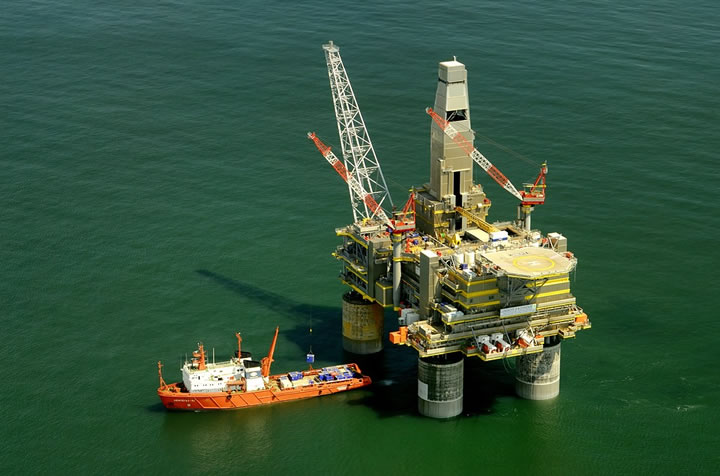Making Money Trading Oil: A Slippery Investment or Black Gold? / Commodities / Crude Oil
The oil markets rank among the mostvolatile commodity markets in the world, thanks in large part to the myriadfactors that determine oil prices. Geopolitical concerns, the actions ofspeculators, regional tensions, demand and supply considerations, alternativetechnologies, and many interrelated factors determine oil prices. For example,the Iranian attack on SaudiArabian oil fields was a major setback for regional security and theoil market was rocked in the process.

One can never discount the specter of warbetween arch foes Israel and Iran, and how this may impact the oil markets. TheUS decision to withdraw troops from Syria has facilitatedthe infiltration andincursion of Turkish forces into Kurdish territory, with concomitant effects onthe balance of power which in turn impacts price stability in the oil market.The convoluted nature of the oil markets is further destabilized by the testyrelationship between the US and Iran.
Trading the Oil Markets with a Trusted Broker
Traders and investors are not deterred bythe violent paroxysms in the crude oil markets; in fact, this volatility is thestrongest possible driver of interest in this commodity. The actions of tradersplay a big part in the price of crude oil, particularly day traders who areinterested in generating profits from slight changes in the price of crude oil.The nature of crude oil markets is such that it doesn't matter whether theprice rises or falls – profits can be generated in either direction.
With speculative activity, traders are notrequired to physically move barrels of crude oil from buyer to seller or vice versa;contracts are traded electronically and profits/losses accrue as a result.Futures contracts serve as the most popular way to trade crude oil. Thesecontracts set a fixed price and date for the sale of crude oil and theprofit/loss that is generated is determined by the difference between the buyand sell prices.
With day traders, things are different.Profits and losses are determined at the close of trade each day. There are twomajor exchanges where oil is traded: The International Petroleum Exchange(London, UK), and the CME Group NYMEX (New York, New York). The OPEC basket isan aggregate pricing mechanism for oil exports from the Organisation of PetroleumExporting Countries. Foremost among them is Saudi Arabia. After the attack onthe Saudi Arabian oil fields, prices spiked with concerns about how globaldemand would be met. With Iran out of the equation, the focus shifts to otherOPEC countries and WTI producers.
Other Options for Trading & Investing inOil
Oil contracts typically encompass WTI crudeoil at 1000 barrels of crude and E-Mini Crude Oil Futures with 500 barrels ofcrude. Oil prices usually move in one penny increments with standard lots and2.5 cents on the E-Mini oil contracts. With regards to margin and tradingfigures, amounts will vary between commodity brokers. If you trade oil at Plus500 for example, therequirement is simply to buy or sell crude oil with a CFD.
A CFD is a contract for difference; a derivativetrading instrument. This high-risk option has the potential for profit or loss,like all trading activities, but there are no commissions on oil trades at thisbroker. Trader sentiment typically cycles rapidly between buy and sell,depending on macroeconomic, geopolitical, and speculative sentiment. While oilis typically traded for short periods of time, it is entirely possible toinvest in this financial instrument for the long haul.
Traders routinely make use of economicreports to assist in buy & sell decisions with crude oil. These reportsinclude the EIA Gasoline Stocks, EIA Crude Oil Stocks, EIA Weekly Petroleum StatusReport, EIA Distillate Stocks, Refinery Usage, and Total Products Supplied, NetChange et al. The data is used to gauge supply and demand, and how this willlikely impact WTI and Brent crude oil pricing.
From a rudimentary perspective, a surge ininventory levels has a downward effect on prices, while a reduction in oilstockpiles indicates a spike in oil demand which invariably raises prices. OilCFDs rank among the most popular options for traders, given their simplicity.Low capital requirements are usually needed to get started, and since there arecompetitive spreads and no commissions, this regulated market is accessible totraders across the board, 23 hours a day, 5 days a week. Profits can begenerated in both directions – buying and selling, whether prices are rising orfalling.
By Boris Dzhingarov
© 2019 Copyright Boris Dzhingarov - All Rights Reserved
Disclaimer: The above is a matter of opinion provided for general information purposes only and is not intended as investment advice. Information and analysis above are derived from sources and utilising methods believed to be reliable, but we cannot accept responsibility for any losses you may incur as a result of this analysis. Individuals should consult with their personal financial advisors.
© 2005-2019 http://www.MarketOracle.co.uk - The Market Oracle is a FREE Daily Financial Markets Analysis & Forecasting online publication.
